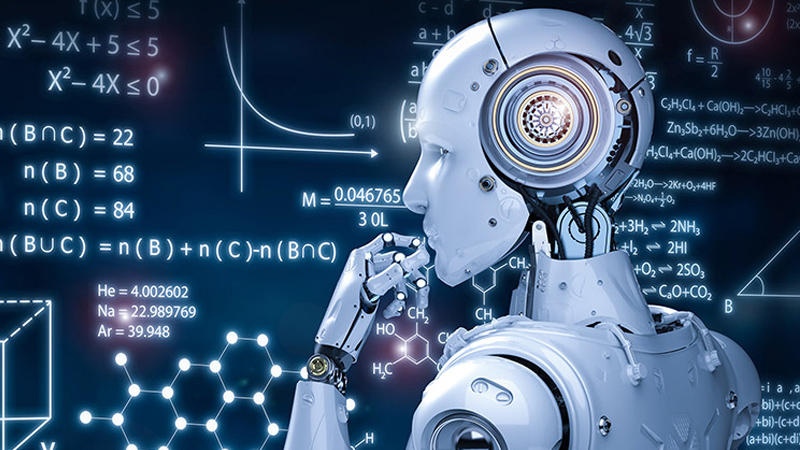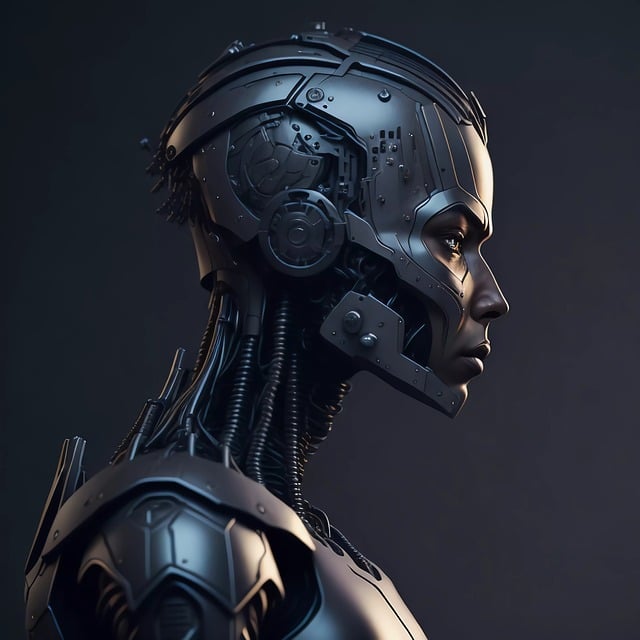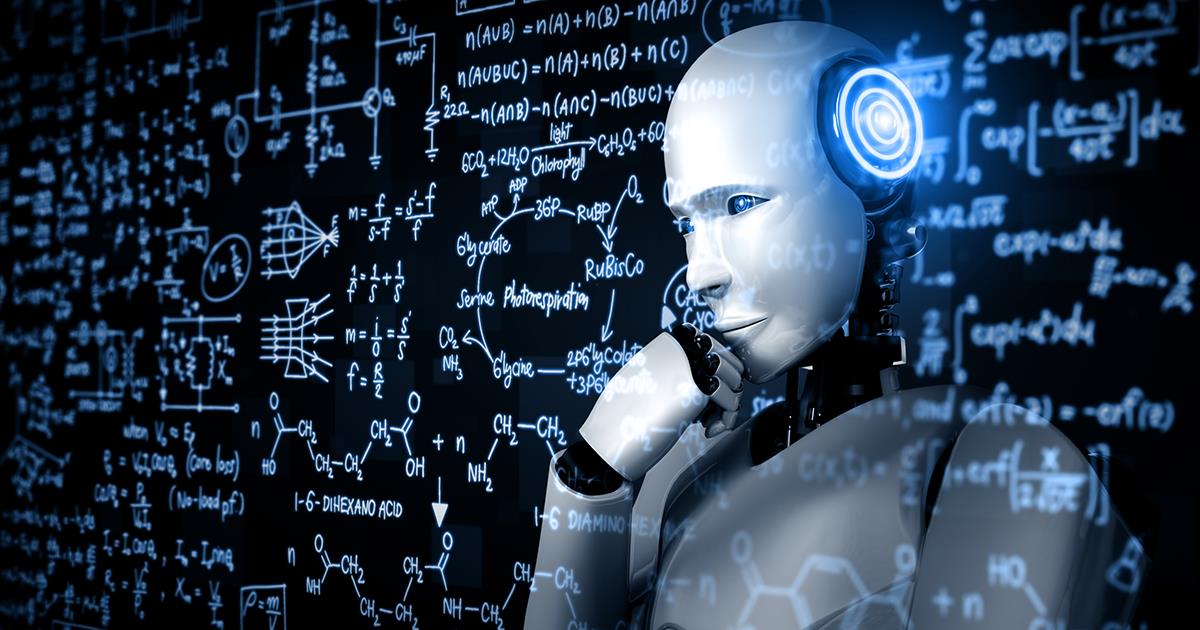
In recent years, the gaming industry has undergone a significant transformation, thanks to the advancements in artificial intelligence (AI). From game design and machine learning to analyzing player behavior and achieving realistic gameplay, AI has revolutionized the way games are developed and experienced.
This article explores ten groundbreaking ways AI is changing the gaming landscape, offering technical insights and precise observations on the impact of AI in game development. Get ready to discover the future of gaming with these cutting-edge AI technologies.
Game Design With AI
Game design in the gaming industry is being transformed by the implementation of artificial intelligence (AI). AI-powered systems are revolutionizing game balancing and the creation of AI-generated content.
Traditionally, game balancing required manual adjustments by developers, often leading to imbalances and frustration for players. However, AI algorithms can now analyze vast amounts of gameplay data to identify areas that require adjustment, resulting in more fair and enjoyable experiences.
Additionally, AI-generated content allows for endless possibilities in game design. AI algorithms can create unique levels, characters, and storylines, providing players with fresh and dynamic experiences. This not only reduces the burden on developers but also ensures that games have a longer lifespan and maintain player engagement.
The integration of AI into game design is truly revolutionizing the industry, offering unprecedented freedom and creativity.
Machine Learning in Gaming
Machine learning has become a game-changer in the gaming industry. It has revolutionized the way AI-powered game experiences are designed and implemented. Through machine learning algorithms, game developers can create dynamic in-game learning systems that adapt to individual player behaviors and preferences. This enhances player engagement and satisfaction.

This technology allows games to continuously evolve and provide personalized experiences. It leads to a more immersive and enjoyable gaming environment.
Ai-Powered Game Experiences
Utilizing advanced artificial intelligence technology, the gaming industry is revolutionizing player experiences through the integration of machine learning.
One of the key aspects of this revolution is the development of AI-powered game companions. These virtual entities are designed to enhance the gameplay by providing assistance, companionship, and even emotional support to players. By analyzing player behavior and adapting to their preferences, these companions can create personalized and engaging experiences.
Moreover, AI is also making its mark in the world of eSports. With the ability to analyze massive amounts of data in real-time, AI algorithms can provide insights and predictions that can help players strategize and improve their performance.
From identifying patterns to optimizing gameplay, AI is transforming the way players interact with games and pushing the boundaries of what is possible in the gaming industry.
Enhancing Player Engagement
AI is increasingly transforming the gaming industry by effectively enhancing player engagement through the application of machine learning techniques. By utilizing AI-powered algorithms, game developers are able to create more immersive gameplay experiences that capture and retain the attention of players.
Here are some key ways in which AI is enhancing player engagement:

- Personalized gameplay experiences: AI algorithms analyze player data to understand individual preferences and adapt the game accordingly, providing a more tailored and engaging experience.
- Dynamic difficulty adjustment: AI can dynamically adjust the difficulty level of a game based on player performance, ensuring a challenging but not frustrating experience.
- Real-time feedback and assistance: AI-powered systems can provide players with real-time feedback and assistance, helping them improve their skills and stay engaged.
- Predictive analytics for player retention: AI algorithms can analyze player behavior and predict patterns of player retention, allowing game developers to optimize their strategies and increase player engagement.
Dynamic In-Game Learning
Continuing the discussion on enhancing player engagement, the gaming industry is now embracing dynamic in-game learning, a revolutionary approach that utilizes machine learning techniques. This innovative method aims to improve the gaming experience by optimizing in-game decision making and providing adaptive difficulty levels.
With dynamic in-game learning, machine learning algorithms analyze player behavior, preferences, and performance to dynamically adjust the game's challenges and rewards. This allows for a personalized and immersive gaming experience, tailored to each individual player's skill level and preferences.
By incorporating machine learning into games, developers can create intelligent systems that learn from player interactions and constantly adapt to provide an optimal level of challenge. This not only keeps players engaged but also ensures that the game remains challenging without becoming frustratingly difficult or too easy.
Dynamic in-game learning represents a significant advancement in the gaming industry, as it harnesses the power of artificial intelligence to enhance gameplay and create more immersive and enjoyable experiences for players.
Procedural Generation With AI
Procedural generation, when combined with AI, has the potential to revolutionize the gaming industry by offering endless game worlds and unique player experiences.
By using algorithms and data analysis, AI can dynamically create game content such as landscapes, levels, and quests, providing players with a sense of exploration and discovery.
This not only enhances replayability but also allows developers to create games that adapt and evolve based on player interactions, leading to a more immersive and personalized gaming experience.

Endless Game Worlds
The implementation of advanced algorithms and machine learning techniques has revolutionized the gaming industry by enabling the creation of boundless virtual environments through the process of procedural generation. This breakthrough has led to the development of endless game worlds that offer players a truly immersive and dynamic experience.
Here are some key aspects of this advancement:
- Infinite Exploration: Procedural generation allows for the automatic creation of vast and diverse game environments, providing players with unlimited possibilities for exploration.
- Dynamic Challenges: AI-generated game environments adapt to player actions, creating new challenges and ensuring a unique experience every time.
- Unpredictable Narratives: AI-generated narratives add depth and complexity to the game, making each playthrough a new and exciting adventure.
- Player Freedom: The freedom to explore, interact, and shape the game world according to individual preferences is enhanced by the limitless possibilities offered by procedural generation.
With AI-generated narratives and game environments, players can now enjoy games that offer endless possibilities, providing a sense of freedom and adventure like never before.
Unique Player Experiences
One notable aspect of this AI-powered procedural generation in the gaming industry is the creation of unique player experiences.
By leveraging AI driven player interactions and AI generated game content, developers are able to offer players a level of freedom and personalization that was previously unimaginable.
AI algorithms can analyze player behavior, preferences, and skill levels to dynamically adjust the game environment, challenges, and rewards, ensuring a tailored experience for each individual.
This not only enhances player engagement but also provides a sense of immersion and ownership over the gaming experience.

Additionally, AI-powered procedural generation allows for the creation of vast and diverse game worlds that can be explored endlessly, offering players a sense of discovery and adventure.
With AI at the helm, the gaming industry is paving the way for truly unique and personalized player experiences.
Analyzing Player Behavior
By analyzing player behavior, AI is revolutionizing the gaming industry. AI algorithms can now delve into player psychology and motivations, providing valuable insights that were previously inaccessible.
Here are four ways AI is transforming the analysis of player behavior:
- Personalized experiences: AI can analyze player behavior to create personalized gaming experiences tailored to individual preferences and play styles.
- Predictive analytics: AI algorithms can predict player behavior based on historical data, enabling developers to make informed decisions and adjustments to improve player engagement.
- Player segmentation: AI can identify different player segments based on behavior patterns, allowing developers to target specific groups with customized content and marketing strategies.
- Cheating detection: AI algorithms can detect and prevent cheating behavior by analyzing player actions and identifying suspicious patterns.
With AI's ability to analyze player behavior, the gaming industry can now offer more immersive and engaging experiences, catering to the diverse motivations and preferences of players.
Achieving Realistic Gameplay
AI algorithms play a crucial role in achieving realistic gameplay in the gaming industry. One way AI achieves this is through realistic physics simulations. By simulating the laws of physics, AI algorithms can accurately model how objects behave in a virtual world. This enables game developers to create more immersive and believable environments where players can interact with objects and characters in a way that mirrors real-life experiences.
Another way AI contributes to realistic gameplay is through AI generated game content. With the ability to analyze vast amounts of data, AI algorithms can create dynamic and personalized game content that adapts to each player's unique preferences and playstyle. This not only enhances the player's experience but also adds depth and longevity to the game. AI algorithms can generate new levels, quests, and challenges, ensuring that players always have fresh and engaging content to explore.

AI and Virtual Reality Integration
Integrating virtual reality with AI is revolutionizing the gaming industry. This powerful combination is enhancing immersion and providing a new level of realism for gamers. Here are a few ways AI and VR integration is transforming the gaming experience:
- AI-powered NPCs: Virtual reality games can now offer more realistic and intelligent non-player characters (NPCs) that respond to player actions in a more human-like manner. AI algorithms enable NPCs to adapt and learn from their interactions, making the gaming experience more dynamic and engaging.
- Virtual reality training: AI and VR integration is not only limited to entertainment, but it also has practical applications in training simulations. Industries such as healthcare, aviation, and military are utilizing AI-powered VR systems to provide realistic training experiences that can improve skills and decision-making in a safe and controlled environment.
- Enhanced immersion: By combining AI and VR, developers can create immersive worlds that respond intelligently to player actions. AI algorithms can analyze player behavior in real-time and adjust the virtual environment accordingly, creating a more personalized and captivating gaming experience.
- Adaptive difficulty: AI can analyze player performance and adjust the difficulty level of the game in real-time. This ensures that players are always challenged enough to stay engaged, but not overwhelmed or frustrated.
The integration of AI and VR is truly revolutionizing the gaming industry, providing gamers with more realistic and immersive experiences, and extending the potential applications of virtual reality beyond entertainment.
AI-powered Game Testing
One key aspect of the revolution AI is bringing to the gaming industry is the use of automated game testing. AI-driven bug detection has become an integral part of the game development process, allowing developers to identify and fix issues more efficiently. By leveraging machine learning algorithms, AI can analyze vast amounts of game data and identify patterns that indicate potential bugs or glitches.
This not only saves time but also ensures a higher level of quality in the final product. Additionally, AI-powered game testing is also being used for automated game balancing. Through data analysis and AI algorithms, developers can fine-tune game mechanics and ensure a fair and enjoyable experience for players.
This level of automation and intelligence in game testing is transforming the industry and paving the way for more efficient and high-quality game development.
Personalizing the Gaming Experience
With the advancements in AI technology, game developers are now able to personalize the gaming experience to cater to individual player preferences. AI driven personalization is revolutionizing the gaming industry by providing customized gaming experiences that adapt to each player's unique style and preferences. Here are some ways AI is transforming the gaming experience:
- Adaptive difficulty: AI algorithms analyze player behavior in real-time and adjust the difficulty level accordingly, ensuring a challenging but not frustrating experience.
- Personalized recommendations: AI algorithms analyze player preferences and behavior to provide personalized game recommendations, helping players discover new games they are likely to enjoy.
- Dynamic storytelling: AI can create dynamic narratives that adapt to player choices, creating a more immersive and personalized storytelling experience.
- Intelligent enemy behavior: AI enables enemies in games to learn and adapt to the player's strategies, making the gameplay more challenging and engaging.
These AI-driven personalization techniques are enhancing the gaming experience, providing players with a sense of freedom and immersion like never before.

Interactive Storytelling With AI
AI technology is revolutionizing the gaming industry by enabling interactive storytelling experiences. With the advancement of AI, game developers can now create more immersive and dynamic narratives that adapt to the choices and actions of players.
AI-generated narratives allow for a personalized and unique storytelling experience, where players can shape the outcome of the game based on their decisions. Additionally, AI-controlled non-player characters (NPCs) enhance the interactive storytelling experience by providing realistic and unpredictable interactions with players.
These NPCs can adapt their behavior and dialogue based on the player's actions, creating a more engaging and lifelike environment. By integrating AI into interactive storytelling, game developers are able to offer players a sense of freedom and agency, making the gaming experience more captivating and immersive.
AI in Game Development
The integration of artificial intelligence technology has transformed the landscape of game development. AI is revolutionizing the way games are created and experienced, bringing new possibilities and enhancing player engagement.
Here are a few key areas where AI is making a significant impact in game development:
- AI in player interaction: AI-powered characters and non-player characters (NPCs) can now respond to players' actions and adapt their behavior accordingly, creating dynamic and immersive gameplay experiences.
- AI in game monetization: AI algorithms can analyze player behavior and preferences to personalize in-game offers and advertisements, optimizing monetization strategies and maximizing revenue potential.
- AI in game testing: AI can automate the testing process, identifying bugs and glitches more efficiently and reducing the time and resources required for quality assurance.
- AI in procedural content generation: AI algorithms can generate vast amounts of content, such as levels, environments, and quests, helping developers create rich and diverse game worlds.
With AI's advancements in player interaction, game monetization, testing, and procedural content generation, game developers can create more engaging and profitable games, providing players with new and exciting experiences.
Frequently Asked Questions
How Does AI Contribute to the Development of Interactive Storytelling in Games?
AI contributes to the development of interactive storytelling in games by generating narratives that adapt to player choices, creating immersive and personalized experiences. This enables players to have freedom in shaping the game's outcome and enhances overall gameplay satisfaction.

What Role Does AI Play in Achieving Realistic Gameplay Experiences?
AI plays a crucial role in achieving realistic gameplay experiences by enhancing player immersion and creating dynamic game environments. Through its ability to adapt and learn, AI technology contributes to more engaging and lifelike gaming experiences.
How Is Machine Learning Utilized in the Gaming Industry?
Machine learning is extensively utilized in the gaming industry, particularly in game development and design. AI technologies enable developers to create realistic and immersive experiences by enhancing game mechanics, character behavior, and adaptive gameplay elements.
Can AI Personalize the Gaming Experience for Individual Players?
AI driven player customization and AI powered adaptive difficulty are two ways in which AI can personalize the gaming experience for individual players. These advancements in AI technology allow for a more tailored and immersive gameplay, enhancing player satisfaction and engagement.
How Does AI Contribute to the Testing of Video Games?
AI contributes to the testing of video games through its capabilities in bug detection and game balance optimization. By analyzing vast amounts of data, AI can identify and fix bugs more efficiently, ensuring a smoother gaming experience for players. AI also helps game developers fine-tune game balance, making gameplay more enjoyable and challenging.
 Business & FinanceHealth & MedicineTechnologyLifestyle & CultureScience & EnvironmentWorld NewsPrivacy PolicyTerms And Conditions
Business & FinanceHealth & MedicineTechnologyLifestyle & CultureScience & EnvironmentWorld NewsPrivacy PolicyTerms And Conditions
